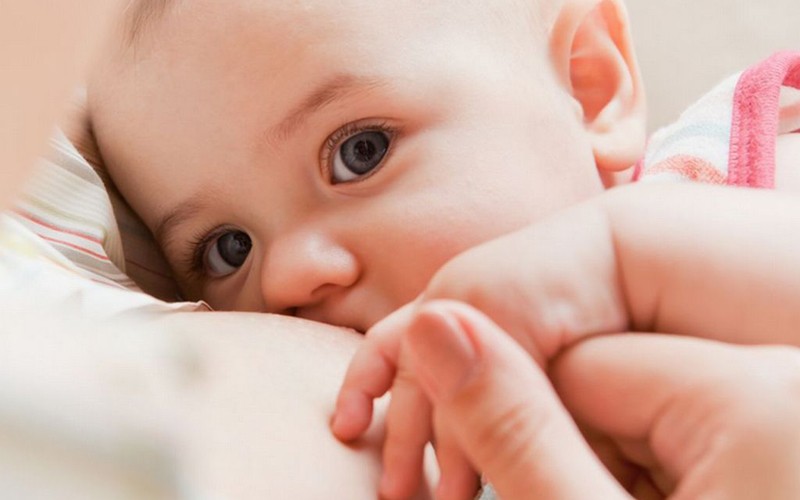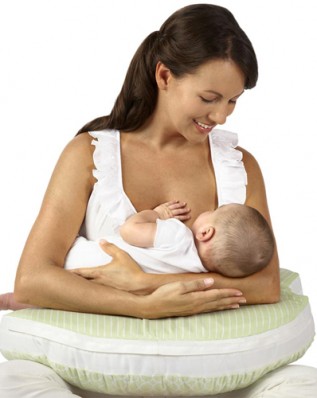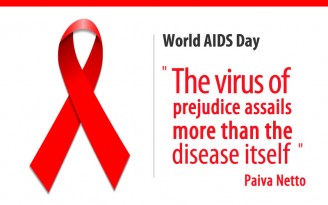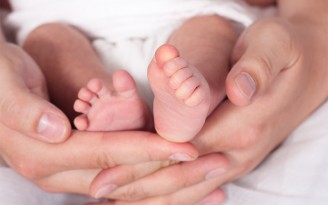
How breastfeeding benefits both mother and baby
Thayná Reis
Monday | October 17, 2016 | 4:16 PM | Last update: October 18, 2016, 8:50 AM (Brasilia time)
Breastfeeding is one of the most effective ways to ensure baby health. The mother’s milk supplies the newborn child with all the essential nutrients for his/her development and prevents problems like diarrhea, breathing disorders, and urinary tract infections. It is no coincidence that the World Health Organization (WHO) recommends that all babies be exclusively breastfed for the first six months of life.

According to the WHO, babies who are not breastfed are twice as likely to die from diarrhea and other infections. Every year the practice saves around six million children. Studies also indicated that breastfeeding may be associated with a reduction in the risk of later overweight and obesity.
"Breastfeeding programs the child’s organism against some illnesses, which in the 21st century are difficult to deal with, because almost the whole population is obese, has high blood pressure and diabetes. For almost every generation since the 1970s we have been using industrialized milk. We’re already beginning to dilate the stomachs of these children from when they are tiny, when they don’t learn to feel satiated," explained Brazilian pediatrician Marisa Aprille.
A GESTURE OF LOVE
Mother’s milk is essential for children to grow healthily. What might go unnoticed by many people is that breastfeeding is, above all, an act of love and is not only advantageous to the newborn child.

By breastfeeding, mothers strengthen the ties of affection with their child, which has a positive effect on their self-esteem. Physiologically it is characterized by an intense release of oxytocin, known as the love hormone. By breastfeeding, the woman is also guarding herself against breast and ovarian cancer, she loses weight more quickly after the birth and it helps the uterus return to its normal size, which reduces the risk of hemorrhage and anemia.
DONATING HEALTH
And what if the mother is unable to breastfeed? There is an explanation for low milk production. Specialists believe that psychological, nutritional, and social factors prevent the release of the milk, because the mother always produces the correct amount of milk for her baby.
To help these mothers, there are Human Milk Banks, which collect breast milk donated by other mothers and distribute it to babies who are registered with a certified milk bank. In this sense every mother who has excess milk can be a donor and help feed several babies.
Pasteurized human milk is used for premature babies, underweight newborn babies, those who are suffering from gastrointestinal tract disorders, twins, and other cases medically prescribed. There is no age limit for receiving the donation; the only things taken into consideration are the baby’s health aspects.
Between 2008 and 2014, these banks benefited 88.5% (almost 11 million) of all the women helped on the planet and counted on the support of 93.2% of the milk donors.
Brazilian women were responsible for 89.2% of the collection of 1.1 million liters of donated milk and benefited 79.1% of all the newborn babies helped by these centers, making Brazil the country that has the greatest number of human milk donors in the world.
The Brazilian Human Milk Banks Network has 292 units worldwide, and the initiative has earned the country special recognition from the Pan American Health Organization (PAHO) and the British medical journal The Lancet as a global model in the provision of mother’s milk. Brazil figures prominently relative to high-income nations, like the United States, the United Kingdom, Portugal, Spain, and China because of the public health policies it adopted at least 30 years ago.
WORLD BREASTFEEDING WEEK
The World Breastfeeding Week 2016, which took place between August 1-7, discussed the topic “Breastfeeding: A key to Sustainable Development.” It was worked with all over the world and raises awareness of the links between breastfeeding and the achievement of the 17 Sustainable Development Goals (SDGs) and 169 corresponding targets that form the 2030 Agenda, adopted by the United Nations (UN).
These are the targets that link to breastfeeding: end poverty and hunger; achieve universal quality education; promote gender equality; ensure environmental sustainability; and establish a world partnership for development.


